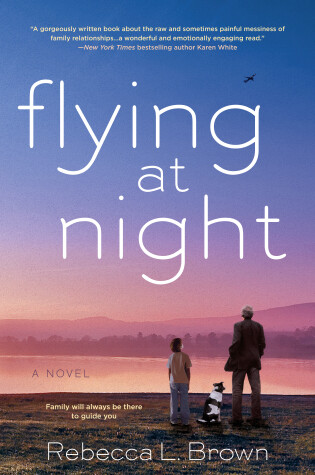
llamareads
Written on Apr 9, 2018
This was a hard book for me to read. Besides being the mom of a child with autism, we had a health crisis in the family a few months ago that closely mirrored part of the book. So, basically, I’m putting it out there that while I normally try to be objective while reviewing a book, this was highly personal for me.
“Though I was used to adjustments for Fred’s quirks, I had been raised to prize politeness above all else, so I always slunk away with my tail between my legs instead of marching out with my middle finger raised in salute to all the assholes who judged my son and me.”
The book is mainly from Piper’s POV, with brief sections from her son, Fred’s, and her father, the Silver Eagle’s, POV. The other POVs, though, are mainly there to support Piper’s narration, as while the other characters change and grow, it’s Piper’s journey that is the focus. Piper was difficult for me to like. She starts the book as a sad, angry, friendless person – for good reason, mind you, as she suffered terrible verbal and emotional abuse as a child – an artist who gave up her career to be a stay-at-home mom to her “quirky” kid. Her husband, Isaac, is mostly absent with his “very important” job with the Innocence Project, there for the special things like parent’s night and concerts, but missing from the day-to-day things that support a family. The daily grind is interrupted when her father suffers a massive heart attack and it looks like the worst will happen – or is it possibly the best outcome? It’s an unexpected “miracle,” though, that, just as she’s forced to come to terms with her son’s differences – she uses “disability” frequently throughout the book, which I disliked – she’s also saddled with a dog and her convalescing father. Her father, however, isn’t the same man she hated, and she’s left figuring out what this new period in her life is. Is it a second chance for their father/daughter relationship? Her father’s penance for years of fear? A lesson in that being different is not less? Piper, much like the WWII soldiers Fred is so fond of, soldiers through, and as the seasons change, she does, too.
I had a very hard time believing that it took until Fred was 9 for a teacher to suggest an evaluation. Fred’s actions – fixating on one topic to the exclusion of everything else, lack of eye contact, social issues – are textbook criteria for a diagnosis. Piper even worked as a respite aide for autistic kids years ago! I think this was where a lot of my annoyance with Piper came from, as it seemed a lot like willful ignorance and pride on her part. I’m not saying that a diagnosis doesn’t come with a lot of roiled up, ugly feelings, but it felt very much like Piper was making it all about her and not Fred. Through it all, though, I never doubted that she loved her son deeply, and she was fiercely protective of him.
“’Have you ever seen this crack, Piper?’ He pulled on my hand until I had no choice but to lie down beside him. We looked up and analyzed the crack together.
‘It goes all the way across. All the way from one wall to the other and back again,’ he said.
‘It’s an impressive crack, Dad.’
‘Is it very old?’ he asked with a slight edge of panic in his voice.
‘Well, it’s been here since we moved in ten years ago, so it’s at least that old, but probably older. It seems like maybe it’s grown, but it’s not something I really notice all that often.’
‘You should notice it, Piper. You should stop and look at it. It’s part of the house, but the house doesn’t fall down. It’s cracked but it still works.’”
Despite my issues with Piper, and with the generally sad tone of the book, I thought Ms. Brown did an amazing job chronicling the struggles of a women dealing with taking care of both her son and her father, and dealing with messy emotions. The characters felt real and well-rounded, and the pacing was perfect. There’s one character that came in toward the end of the book, a fellow autism mom whose name, like mine, is Lauren, and, frankly, it felt like the author had written me in the book! It did get a bit heavy-handed at times – see, for example, that crack in the ceiling conversation between Piper and her father – but I finished the book with a sense of resolution, and that I would be chewing on the themes for a while.
Overall, I found rating this book difficult. I’d probably settle on 3.5 stars, rounded up to 4. If you’re interested in reading about a second chance at a father-daughter relationships or being the mother of an autistic child, you’d very much enjoy this book. I think this would make a nice, meaty summer read.
I received this book for free from NetGalley in exchange for an honest review. This does not affect my opinion of the book or the content of my review.
